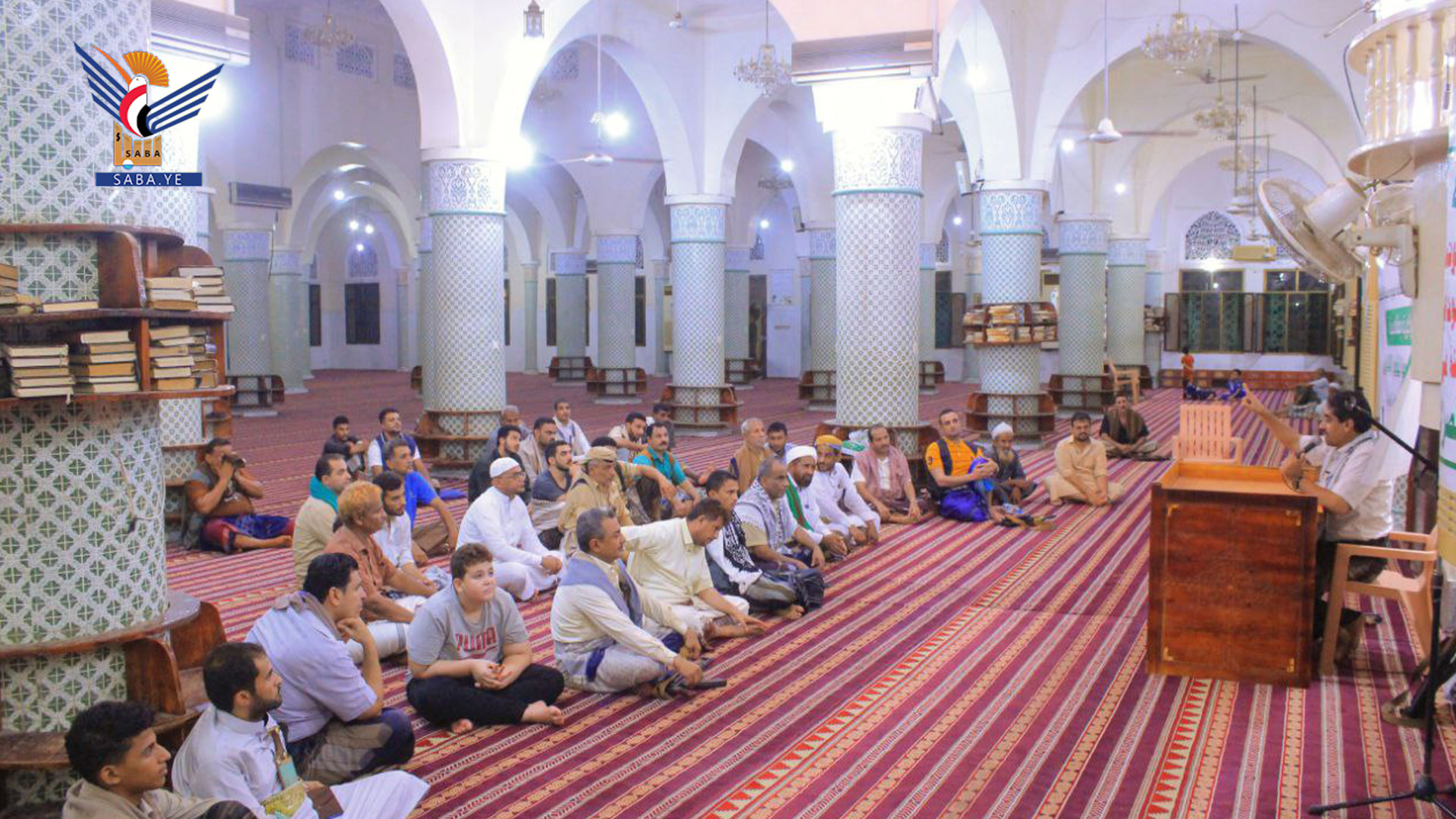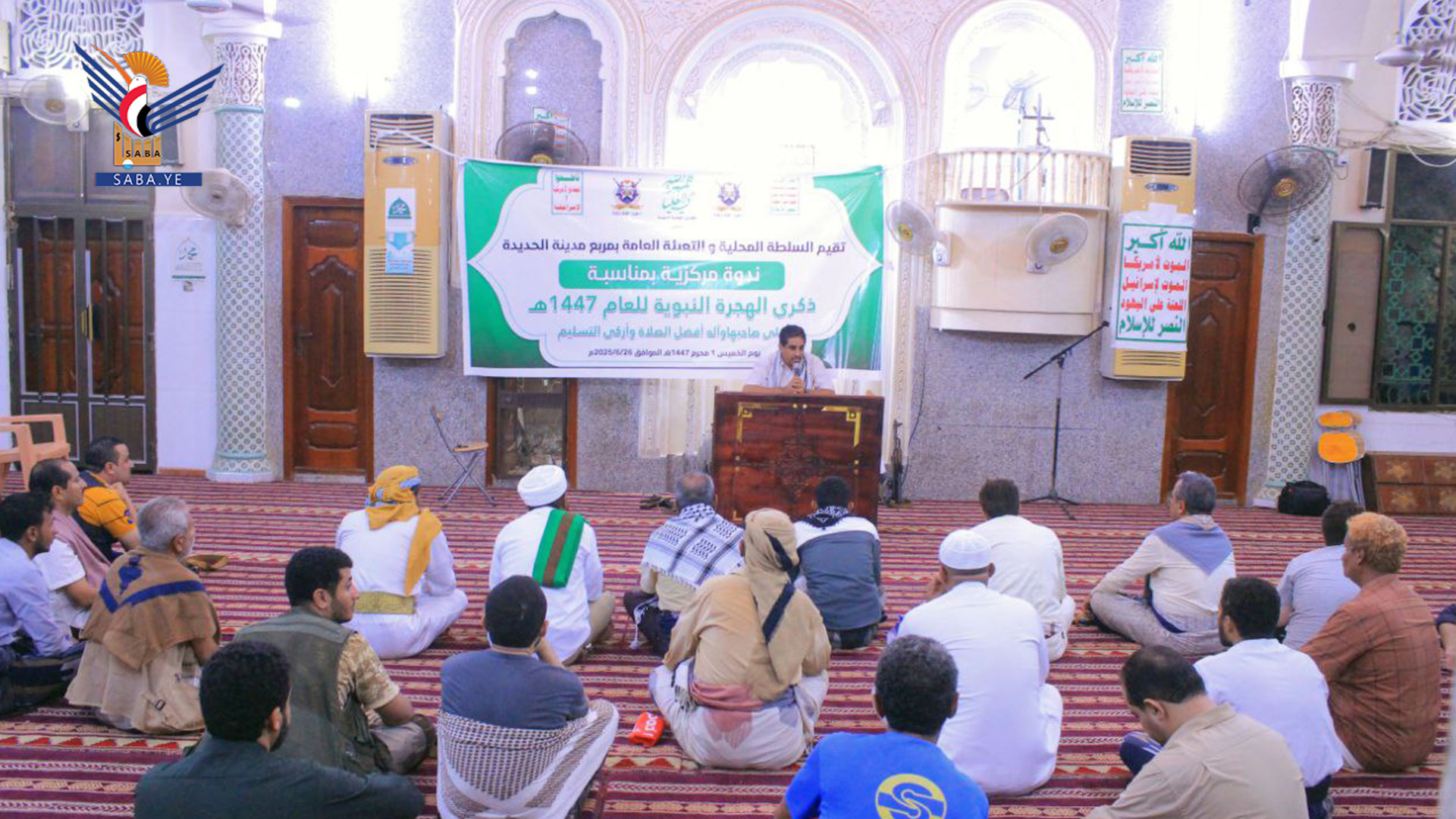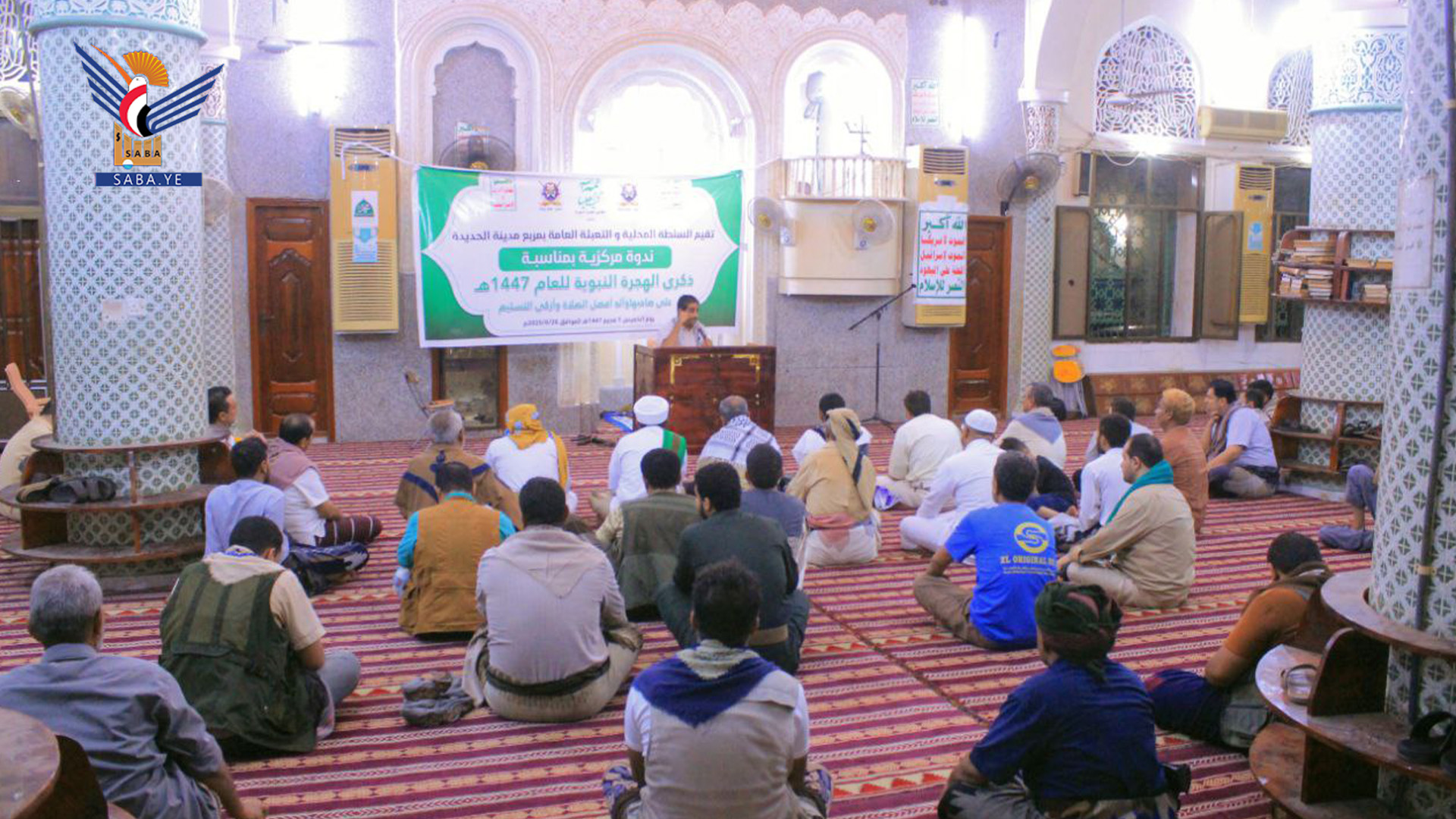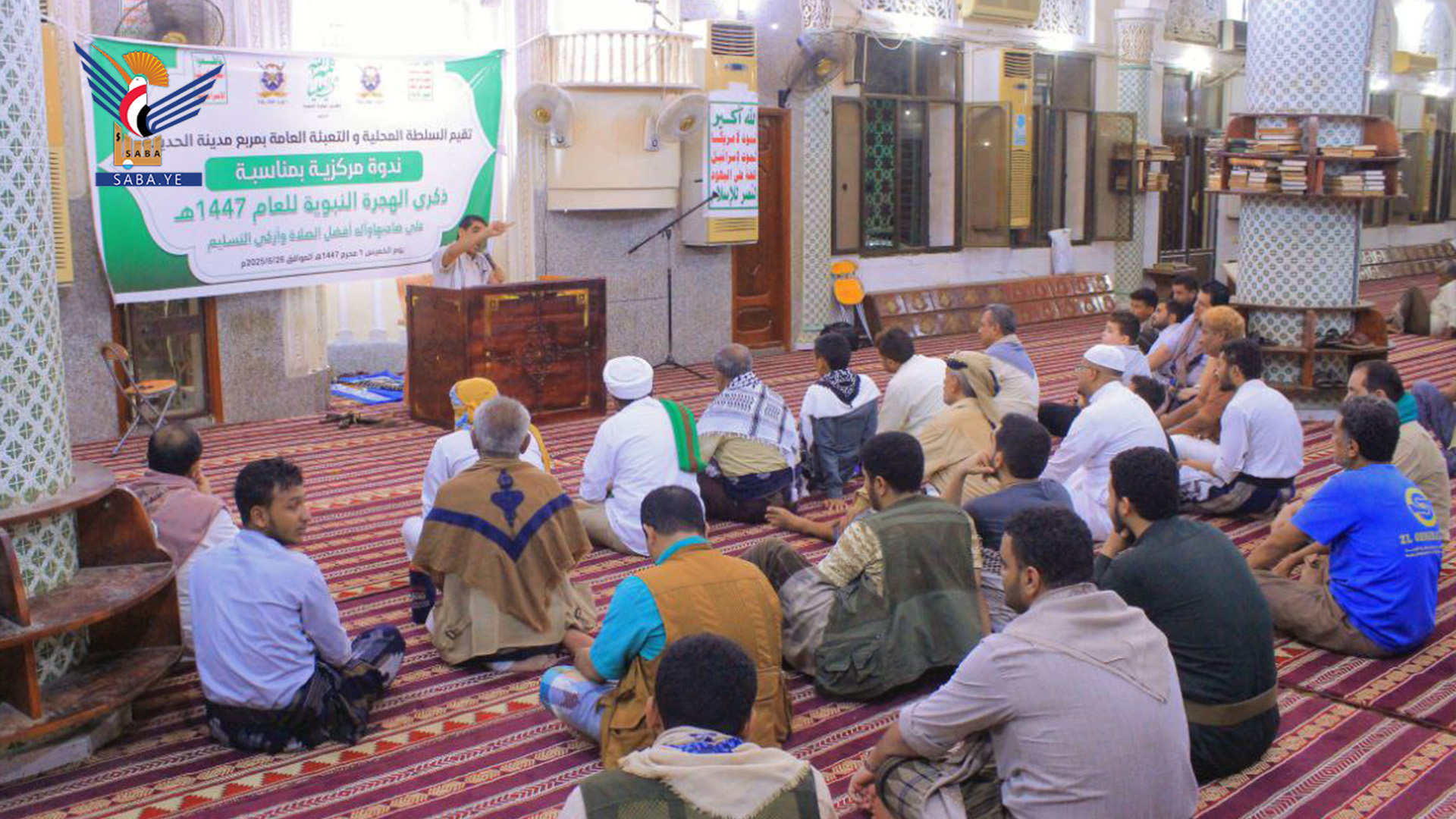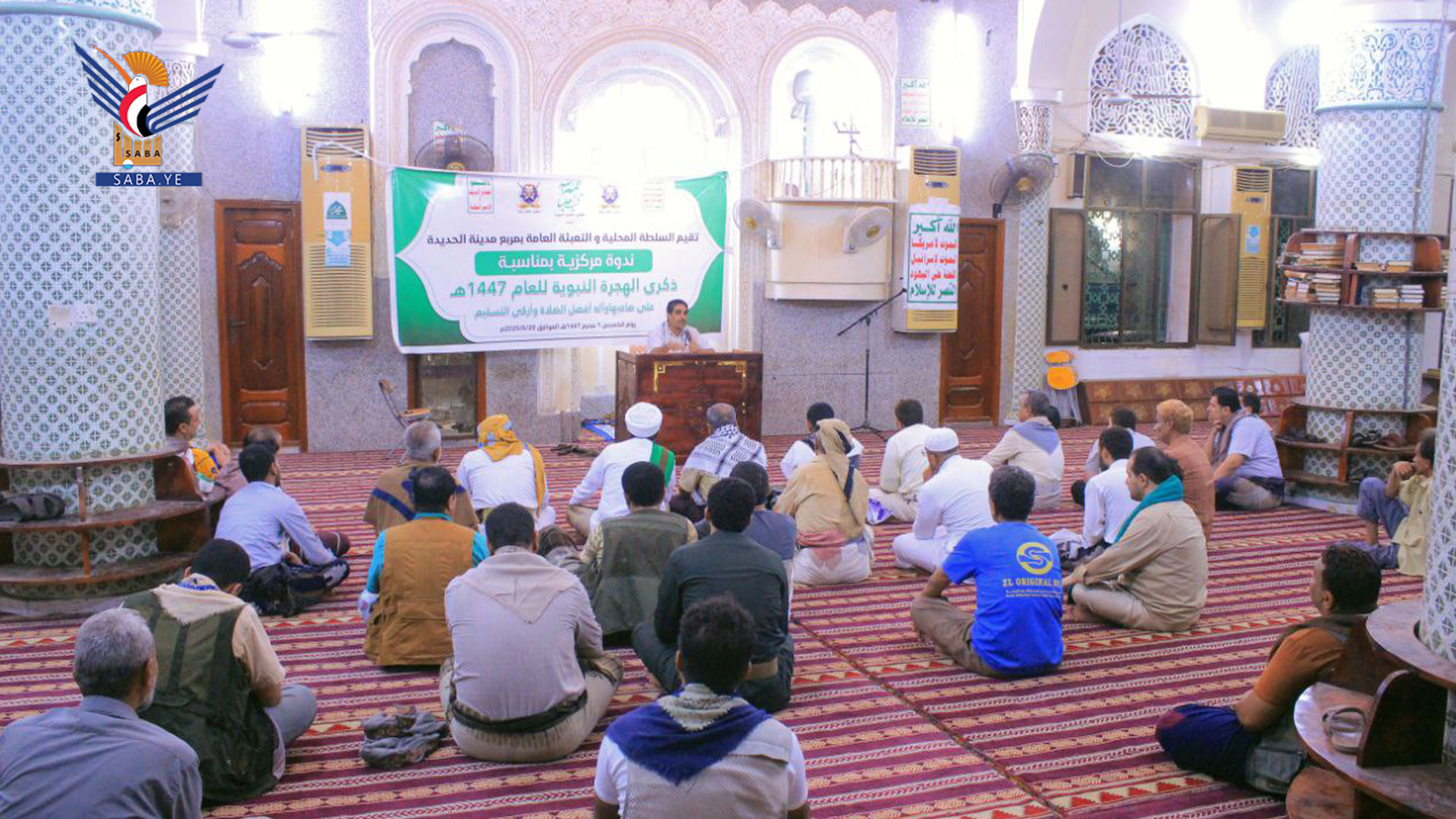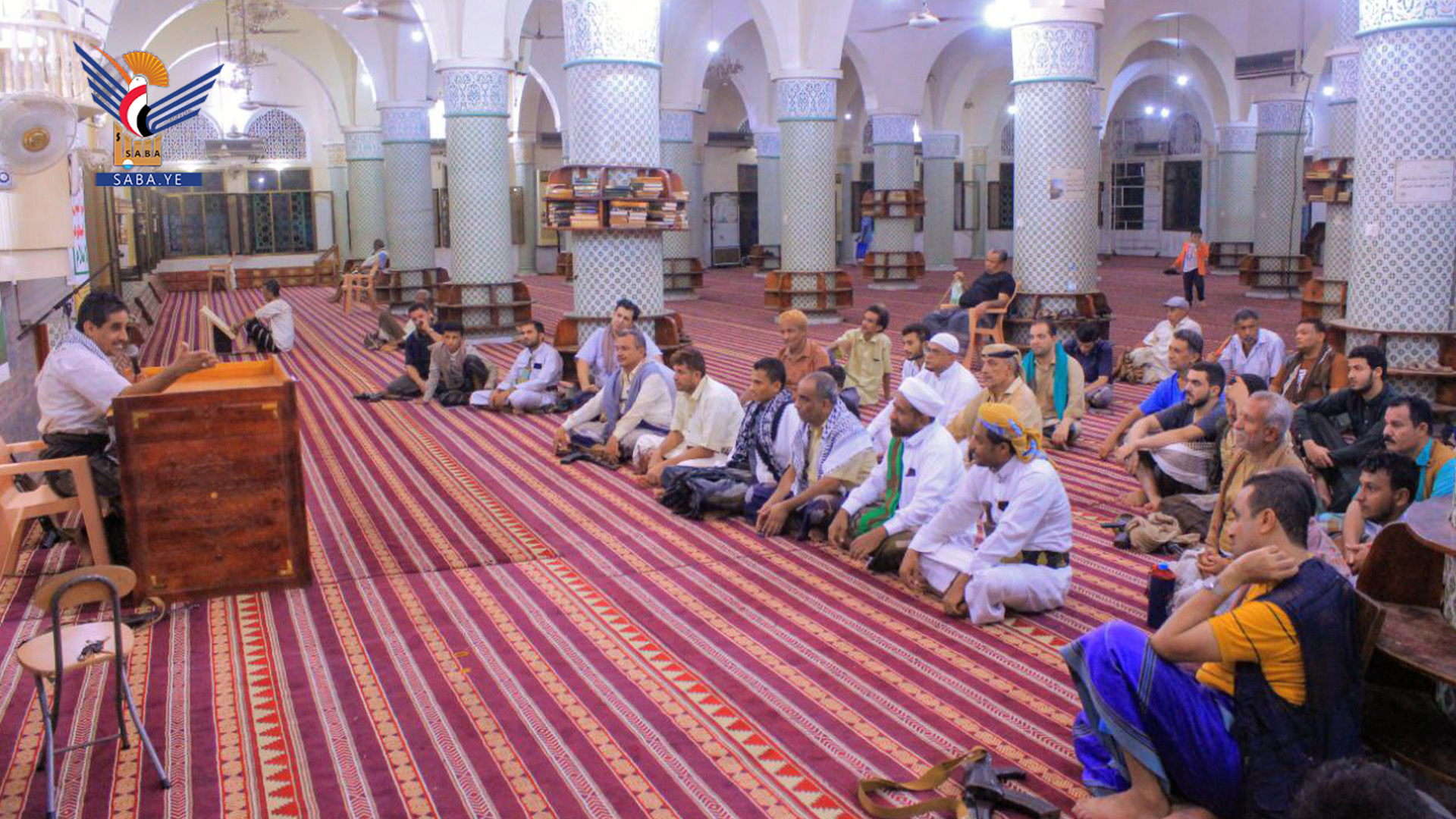
Hodeida - Saba:
The local authority and the Mobilization Unit in Hodeidah City Square held a cultural symposium yesterday evening to commemorate the anniversary of the Prophet's migration.
The symposium, attended by a number of scholars and intellectuals, highlighted the great meanings and lessons that the migration holds for the process of building the Islamic nation.
The symposium addressed the dimensions of the Prophet's migration as a historical and strategic turning point that laid the foundation for the establishment of the Islamic state based on the principles of faith, justice, and jihad. It also linked these lessons to the current reality facing Islamic peoples, especially in light of the challenges they face in Palestine and other countries of the Ummah.
The first deputy governor, Ahmed Al-Bishri, emphasized that the migration was not a passing event, but rather a pivotal moment in the nation's history, representing a transformation from weakness to strength, and from vulnerability to empowerment. He pointed out that harnessing the spirit of migration is essential today, especially in the nation's battle against global tyranny and arrogance.
For his part, Sheikh Ali Somal, head of the Scholars and Learners Unit, explained that migration embodies a divine project to build a Quranic society from the womb of suffering. He explained that migration is not a withdrawal, but rather a positioning in the arena of struggle against falsehood. He called for invoking the spirit of migration and activating it as a method for liberation and victory.
Cultural activist Yahya Al-Hajjaji also pointed out that the Prophet's migration represented a comprehensive civilizational shift that must be absorbed into the nation's consciousness and embodied in behavior and attitude. He called for confronting current challenges with the founding spirit that the Prophet carried in his migration, and for correcting the nation's compass toward independence and dignity.
The symposium concluded with calls to transform this occasion from a mere commemoration into a practical milestone for cultural advancement, building a resilient society based on the teachings of the Qur'an and the approach of the Noble Prophet, and contributing to the fight against hegemony, normalization, and cultural subordination.
The local authority and the Mobilization Unit in Hodeidah City Square held a cultural symposium yesterday evening to commemorate the anniversary of the Prophet's migration.
The symposium, attended by a number of scholars and intellectuals, highlighted the great meanings and lessons that the migration holds for the process of building the Islamic nation.
The symposium addressed the dimensions of the Prophet's migration as a historical and strategic turning point that laid the foundation for the establishment of the Islamic state based on the principles of faith, justice, and jihad. It also linked these lessons to the current reality facing Islamic peoples, especially in light of the challenges they face in Palestine and other countries of the Ummah.
The first deputy governor, Ahmed Al-Bishri, emphasized that the migration was not a passing event, but rather a pivotal moment in the nation's history, representing a transformation from weakness to strength, and from vulnerability to empowerment. He pointed out that harnessing the spirit of migration is essential today, especially in the nation's battle against global tyranny and arrogance.
For his part, Sheikh Ali Somal, head of the Scholars and Learners Unit, explained that migration embodies a divine project to build a Quranic society from the womb of suffering. He explained that migration is not a withdrawal, but rather a positioning in the arena of struggle against falsehood. He called for invoking the spirit of migration and activating it as a method for liberation and victory.
Cultural activist Yahya Al-Hajjaji also pointed out that the Prophet's migration represented a comprehensive civilizational shift that must be absorbed into the nation's consciousness and embodied in behavior and attitude. He called for confronting current challenges with the founding spirit that the Prophet carried in his migration, and for correcting the nation's compass toward independence and dignity.
The symposium concluded with calls to transform this occasion from a mere commemoration into a practical milestone for cultural advancement, building a resilient society based on the teachings of the Qur'an and the approach of the Noble Prophet, and contributing to the fight against hegemony, normalization, and cultural subordination.
